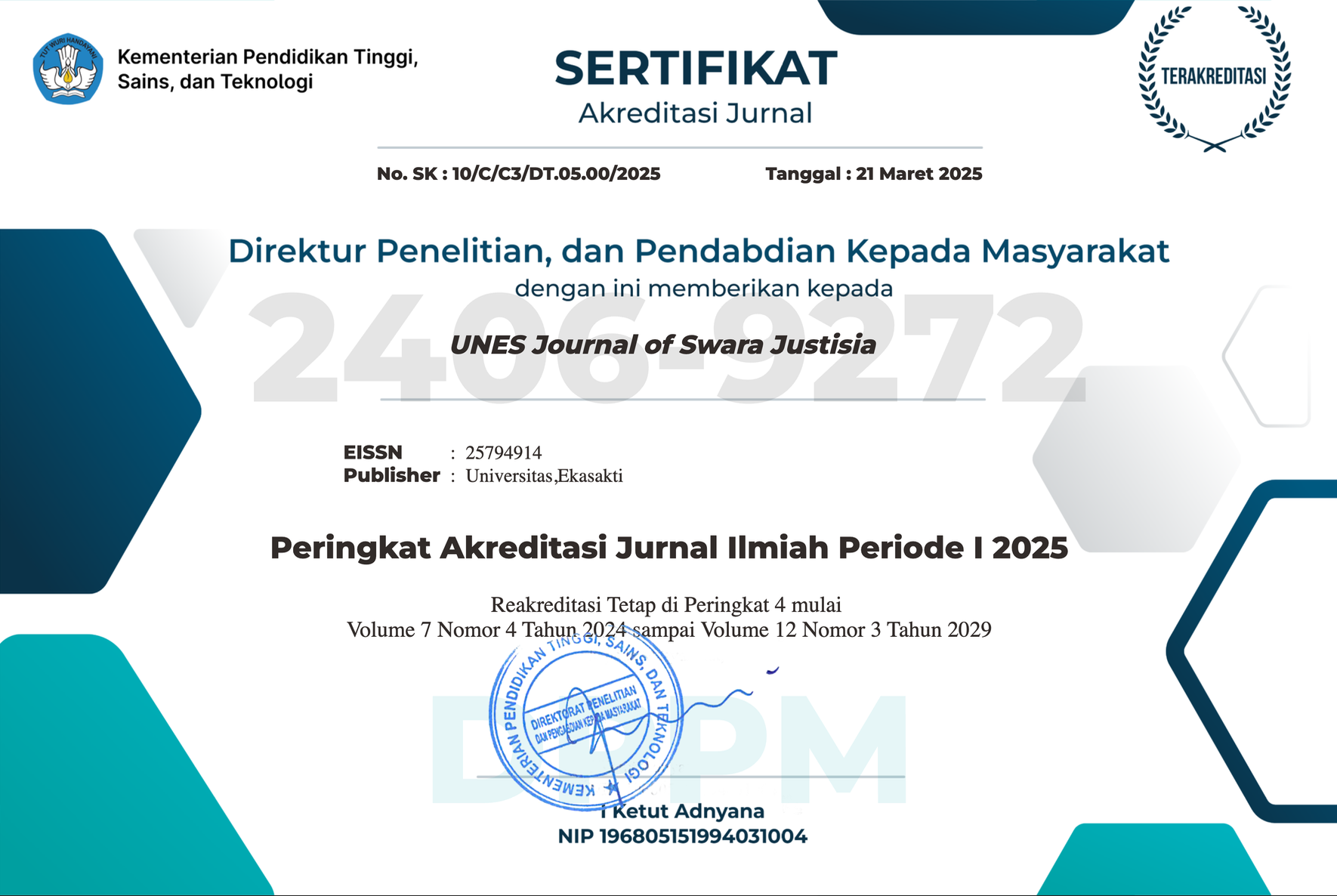PEMBATALAN PENGANGKATAN ANAK PADA PRAKTEKNYA DI PENGADILAN NEGERI BUKITTINGGI
Downloads
Adoption is a necessity for every family that cannot have children, especially for married couples who do not have children so they make adopted children like biological children. Problems arise if the adoptive parents submitted a lawsuit for canceling the adoption. This paper is the result of legal research method using an empirical juridical problem approach. The legal considerations are that a court may not refuse to examine and decide on a case submitted to the court, even though there is no special arrangements or have not been regulated in existing legislation regarding the cancellation of child adoption, the judge who examines the case must be able to explore, follow, and understand legal values and a sense of justice in society. The reasons for canceling the adoption of this child in this case are the feeling of disappointed with the actions of the adopted child who do not pay attention to their adoptive parents; does not respect his adoptive parents, causing less harmonious communication; adopted children do not take care of their adoptive parents who are elderly or sick, even if their adoptive mother dies, so the adopted child is considered not fulfilling their obligations as a child.
Muderis Zairi. (1985). Adopsi Suatu Tinjauan dari Tiga Sistem Hukum. Jakarta: Bina Aksara.
Citra Umbara. (2008). Kamus Hukum, Bandung: Citra Umbara.
Pius Partanto dan Trisno Yuwono. (1994). Kamus Bahasa Indonesia. Surabaya: Arkola.
Singgih D. Gunarsa. (1992). Psikology Perkembangan. Jakarta: BPK Gunung Mulia.
Suhardana. (2001). FX, Hukum Perdata 1. Jakarta: Prenhallindo.
Kitab Undang-Undang Hukum Perdata
Staatblad 1917 Nomor 129
Undang-undang No. 23 Tahun 2002 tentang Perlindungan Anak
Undang-undang No. 4 Tahun 1979 tentang Kesejahteraan Anak
Pemerintah Pemerintah No. 54 Tahun 2007 tentang Pengangkatan Anak
Putusan Pengadilan Negeri Bukit Tinggi No. 09/Pdt.G/2015/PN.BKT
Penulis yang mempublikasikan manuskripnya di jurnal ini menyetujui ketentuan berikut:
- Hak cipta pada setiap artikel adalah milik penulis.
- Penulis mengakui bahwa UNES Journal of Swara Justisia (UJSJ) berhak menjadi yang pertama menerbitkan dengan lisensi Creative Commons Attribution 4.0 International (Attribution 4.0 International CC BY 4.0).
- Penulis dapat mengirimkan artikel secara terpisah, mengatur distribusi non-eksklusif manuskrip yang telah diterbitkan dalam jurnal ini ke versi lain (misalnya, dikirim ke repositori institusi penulis, publikasi ke dalam buku, dll.), dengan mengakui bahwa manuskrip telah diterbitkan pertama kali di UNES Journal of Swara Justisia (UJSJ).
















